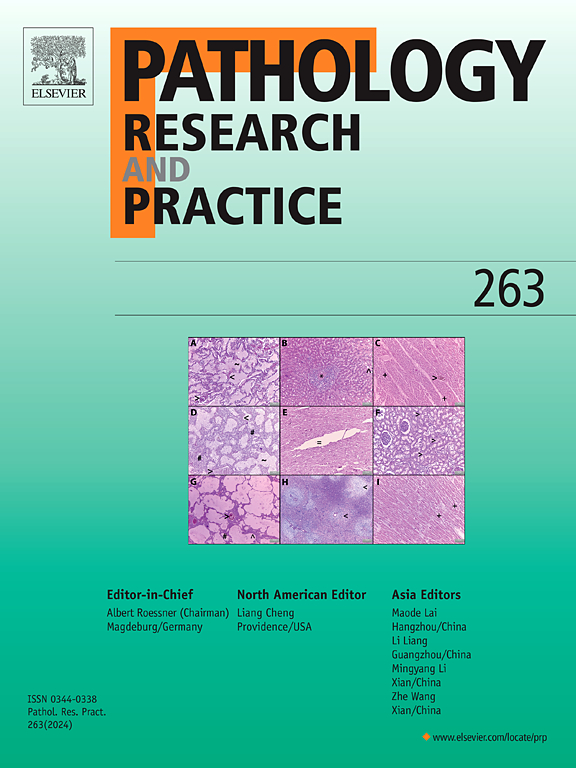Metastasis and chemoresistance in breast cancer: Crucial function of ZEB1/2 proteins
IF 2.9
4区 医学
Q2 PATHOLOGY
引用次数: 0
Abstract
Breast cancer remains one of the leading causes of mortality worldwide. While advancements in chemotherapy, immunotherapy, radiotherapy, and targeted therapies have significantly improved breast cancer treatment, many patients are diagnosed at advanced stages, where tumor cells exhibit aggressive behavior and therapy resistance. Understanding the mechanisms driving breast cancer progression is therefore critical. Metastasis is a major factor that drastically reduces patient prognosis and survival, accounting for most breast cancer-related deaths. ZEB proteins have emerged as key regulators of cancer metastasis. Beyond their role in metastasis, ZEB proteins also influence drug resistance. This review focuses on the role of ZEB1 and ZEB2 in regulating breast cancer metastasis. These proteins interact with components of the tumor microenvironment (TME) to drive cancer progression and metastasis. Additionally, ZEB proteins regulate angiogenesis through interactions with VEGF. Targeting ZEB proteins offers potential therapeutic benefits, particularly for aggressive breast cancer subtypes such as triple-negative breast cancer (TNBC), which often show poor therapeutic response. ZEB proteins also influence the sensitivity of breast cancer cells to chemotherapy, making them promising targets for enhancing treatment efficacy. Given their upregulation in breast cancer, ZEB proteins can serve as valuable diagnostic and prognostic markers.
求助全文
约1分钟内获得全文
求助全文
来源期刊
CiteScore
5.00
自引率
3.60%
发文量
405
审稿时长
24 days
期刊介绍:
Pathology, Research and Practice provides accessible coverage of the most recent developments across the entire field of pathology: Reviews focus on recent progress in pathology, while Comments look at interesting current problems and at hypotheses for future developments in pathology. Original Papers present novel findings on all aspects of general, anatomic and molecular pathology. Rapid Communications inform readers on preliminary findings that may be relevant for further studies and need to be communicated quickly. Teaching Cases look at new aspects or special diagnostic problems of diseases and at case reports relevant for the pathologist''s practice.

 求助内容:
求助内容: 应助结果提醒方式:
应助结果提醒方式:


